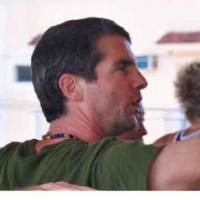Whales are sexy.
They sing. They are huge.
Mike Baird
They are mammals like us, and hey, they even made an album. Its easy to support bans on whaling. Not that they stop whaling. But today, we have other fish to fry.
What’s an ecological crybaby book doing on the New York Times Bestseller List?
“Four Fish, the Future of the Last Wild Food” by Paul Greenberg
What are we supposed to do about protecting fish? Especially when there are people everywhere who want to eat them? Can’t make the world vegan. (Or if you have some ideas on that, let me know.) How are we best to deal with the sizeable puzzle of getting fish onto people’s plates, without running out of fish?
Paul looks into that pretty deeply in this book. His appeal is wide partially because he writes as a fisherman, not as a typical reef hugger. He is likeable and human, you feel his story from the start. He bounced around cottage apartments with his single mom in upscale CT, getting out to rivers and eventually to the Long Island Sound, to find solace and certainty in fishing. So through his eyes, readers are comfortable looking at this puzzle.
And babies, its a stunning mindbender of a question.
How can we keep from fishing the oceans dry? Paul takes us from his humble boat in Connecticut all over the planet, looking at fisheries and fish guides, at the impoverished Alaskan survival fisherman and the uncompromising Japanese Tuna hunters. Like so much in the food supply resource management nonfiction genre tody, this book will leave you weeping and rocking in the corner if you don’t balance it out with some Calvin and Hobbs. How can I condense it for you.
by Tim Pearce, Los Gatos
Big shocker? Fishing as Business has ruined fishing.
Factory fishing has f*cked the fish.
Damming rivers did deep damage.
Any hope? No. We are all gonna die. In fact, I died just reading the book, Services are on Sunady. Ok, that part is just my interpretation. There are distinct rays of hope, and in point of fact one little fish farm in Turners Falls, MA, where the small miracle of a sustainable fish might be appearing. The work Paul is doing here, the inquiry, is spreading. That he got this rascal onto the bestseller list is brilliant. Awareness spreads from books like this. If you didn’t know, and I didn’t, drink in this little fact…
Every pound of fish people eat or throw away required pounds and pounds of fish to produce.
Fish School Northern Anchovies by Geek Philosopher
The virtually uncountable, but finite, schools of tiny feeder fish are carrying the whole load,
and if I told you the picture is sexier than Cindy, that cheerleader who always looked down her nose at you, I’d be lying. Sexy it aint.
On the cumbersomely long list of things I didn’t know was fish eggs and the intricacies of forcing fish to bow to the marketplace in their reproductive timetables. Paul researched early developers in fish farming. One of them injected hormones into fish, which changed the hatching game forever. Where once these fish would delicately search for just the right place to lay eggs, they were now suddenly getting the internal green light to lay eggs all the time. Every new mother fish, before that shift, waited and watched, looking until she found just the right place to lay her eggs.
Call me a Luddite, but something noble has been lost there. Anyway there is more cheerful stuff about early bass hatcheries and the whoops of creating new species of fish who then swam away. Massive pollution is happening from net hatcheries. Tuna are just done, through, over and finished, the manufacture of eating sushi as a cultural rite threw them under the bus, now it’s just a matter of bidding wars. Stop me, I could go on.
Paul’s work here is admirable, and he leaves you wondering how the f*ck we are gonna keep this planet’s marine life from degrading into something smaller than my ex mother-in-law’s charm, but also, he leaves you thinking that maybe if people keep questioning, answers will appear.
He found enough, in Turners Falls, in legislation preventing salmon fishing in Alaska, in people working their butts off to build sustainable fisheries, to make you think maybe, just maybe, you can avert despair for another twenty minutes. You will cringe, it is a must read. Hats off, Paul, nice job.











Read 4 comments and reply